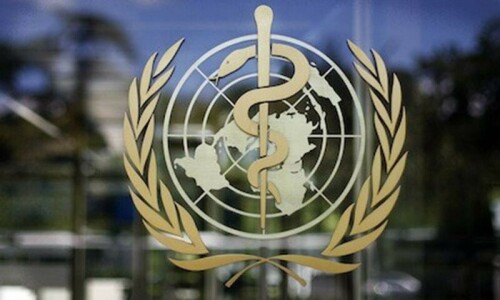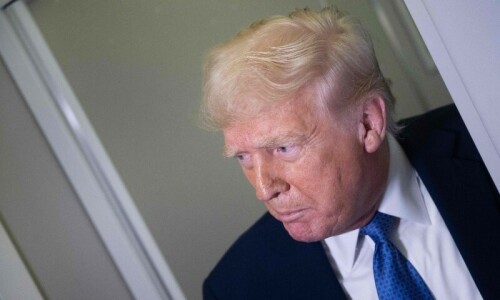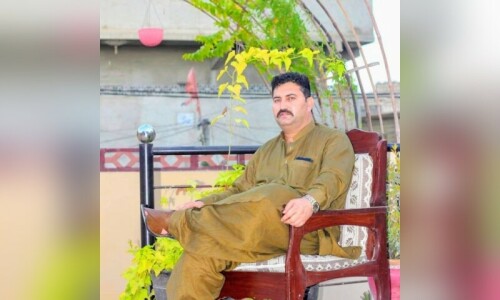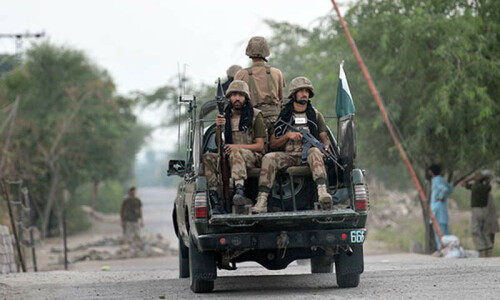A WIDELY asked question about Afghanistan today is whether Covid-19 would slow down or accelerate its tenuous peace process. The simple answer is that the stalled process has little to do with the pandemic and everything to do with the clashing interests of Afghan parties and their inability to break the persisting deadlock on initiating an intra-Afghan dialogue.
What the coronavirus outbreak has not done so far is to significantly affect the phased US withdrawal from Afghanistan. It may even be an additional incentive for Washington to stick to its drawdown plan irrespective of progress towards an intra-Afghan dialogue that can produce a negotiated end to the country’s long war. Indications are that the US drawdown from Afghanistan is proceeding as pledged in the US-Taliban agreement reached in Doha in February; American troops are supposed to reduce to 8,600 by this summer. Some reports suggest that some bases are already being cleared with US forces departing.
Meanwhile, top American diplomats have continued to urge the Afghan parties — the government and the Taliban – to show flexibility to break the stalemate over the prisoner swap, the principal obstacle to starting intra-Afghan negotiations. Under the Doha agreement both sides had to release a specific number of detainees in their custody — 5,000 held by Kabul and 1,000 in Taliban custody. On the completion of this, an intra-Afghan process was to begin about eight weeks ago. This never happened.
US election year makes bringing troops home top priority.
So far around 550 prisoners have been released by the Afghan government and 112 by the Taliban. The rest of the exchange has come to a halt over disagreements about its terms. The Taliban say that the release of all detainees on their list is a pre-condition for intra-Afghan peace talks. They accuse Kabul of deliberate delay and demand the immediate release of detainees because of Covid-19.
On his part, President Ashraf Ghani insists on a reduction in violence before he frees more prisoners. He says he is willing to initially free only 1,500 but in a gradual way. This has been construed by many as a machination by Ghani to use the issue — his principal bargaining leverage at this point — to drag out the whole process. This view is reinforced by his efforts to also enlist certain regional powers who have little interest in seeing the Doha process succeed. One regional state is in fact seeking a parallel peace process. The Taliban have continued to argue that any ceasefire has to be a part and not a precursor to intra-Afghan negotiations.
US diplomatic efforts to overcome the impasse has seen engagement at the highest level by Washington. President Donald Trump’s recent phone call to the Emir of Qatar, Sheikh Tamim bin Hamad al-Thani and Secretary of State Mike Pompeo’s late March visit to Kabul all reflect these endeavours. So was a visit last month to Pakistan and the meeting with army chief Gen Qamar Javed Bajwa by US special representative Zalmay Khalilzad and Gen Austin Miller, US and Nato forces commander in Afghanistan.
With violence on the uptick in Afghanistan, the aim of the parleys in Rawalpindi was to seek Pakistan’s help on different aspects of the peace process including a reduction of violence in line with Pakistan’s commitment to a political solution of the Afghan conflict. Intensification of fighting in Afghanistan and rejection by the Taliban of calls for a Ramazan ceasefire has sent worried American officials scurrying to try to prevent the Taliban’s stepped-up attacks on Afghan National Security Forces from further weakening them. The Taliban’s intensified attacks are aimed at mounting military pressure to strengthen their negotiating hand in intra-Afghan talks while hoping that this can precipitate the ANSF’s collapse or its ethnic fragmentation.
This strategy has been met by escalation in US-backed ANSF attacks on the Taliban. This has prompted accusations from the Taliban that the US, by attacking non-combat areas, is not abiding by the Feb 29 deal. A recently released UN report voices grave concern about the surge in violence in March and the consequent rise in civilian casualties.
The US diplomatic effort is now focused on persuading the Taliban to settle for the release of 2,000 prisoners (rather than 5,000) by Ghani, and not wait for the full swap so that intra-Afghan negotiations can begin. The aim has been for the process to start in early May. This seems an ambitious goal given the wide gap and opposing interests of the two Afghan parties. The dispute over the prisoner issue is more than just that. It reflects both sides’ unwillingness to concede anything significant to each other and portends the formidable difficulties that lie ahead even if this is resolved.
Although the main impediment to the peace process is the impasse over the prisoner exchange, the tussle between President Ghani and Dr Abdullah Abdullah is also clouding prospects. US threats to suspend aid have been accompanied by attempts at reconciliation between the two rival claimants to the Afghan presidency. The EU has also warned of future funding being affected if the feud isn’t ended. Despite some encouraging signs, the two have yet to agree on a power-sharing plan to give Abdullah the executive position and authority he seeks, which Ghani has so far been reluctant to do.
US efforts to expedite the peace process are obviously driven by President Trump’s clear and oft-stated desire to end America’s long involvement in a war that has cost so much in blood and treasure. Being election year in the US, for him bringing troops home will be prioritised over trying to fix a troubled peace process if it doesn’t make any headway. Already there are credible news reports that Trump is getting more impatient and wants to speed up the drawdown.
The uncertain situation in Afghanistan poses severe dilemmas for Pakistan. While aiding the peace process in whatever way it can, Islamabad must envisage and be ready to deal with a range of scenarios that may emerge. It should also, in the interim, intensify its political and diplomatic outreach to all Afghan groups — a lesson that should be learnt from Pakistan’s history of troubled relations with Afghanistan.
The writer is a former ambassador to the US, UK and UN.
Published in Dawn, May 4th, 2020














































